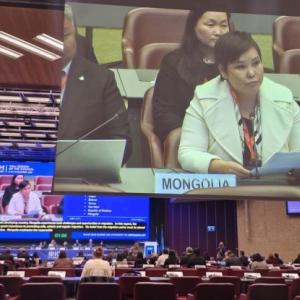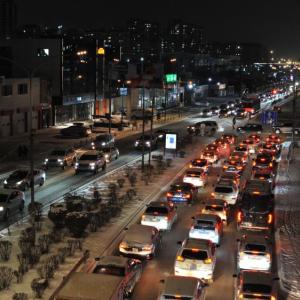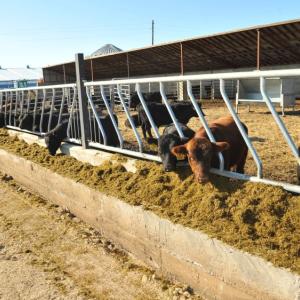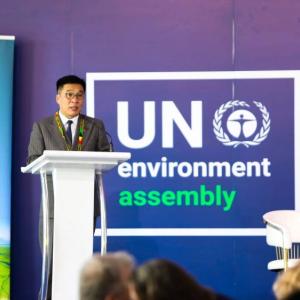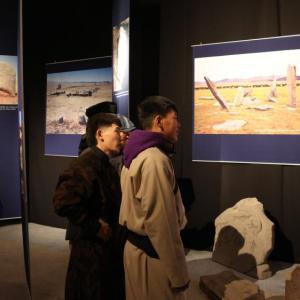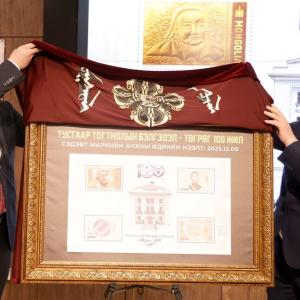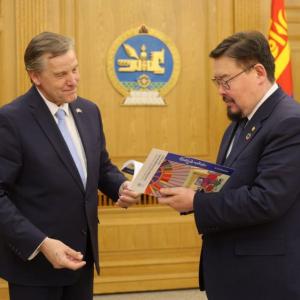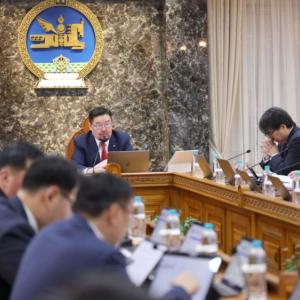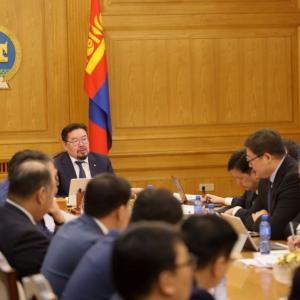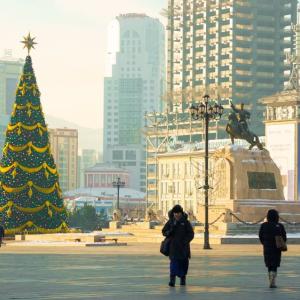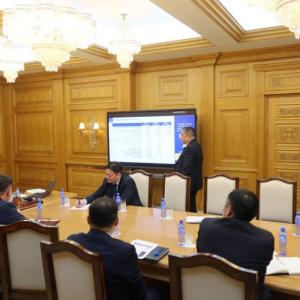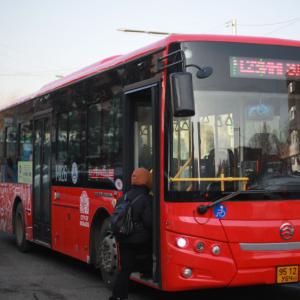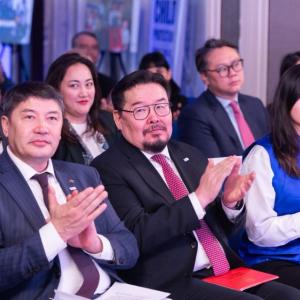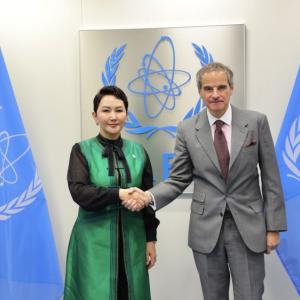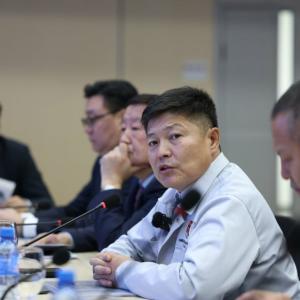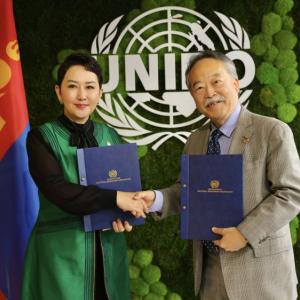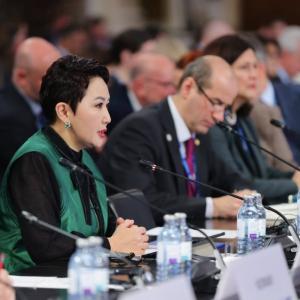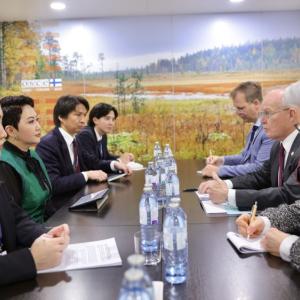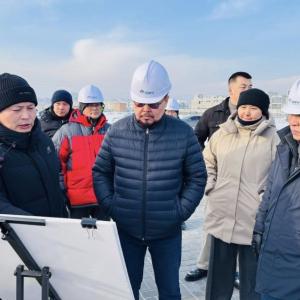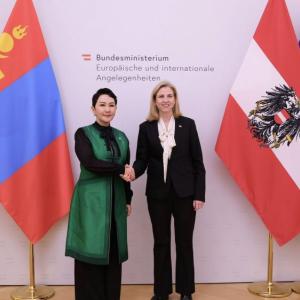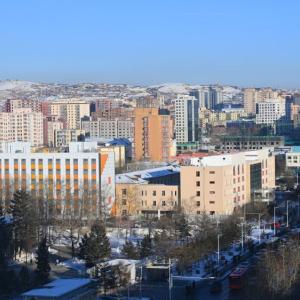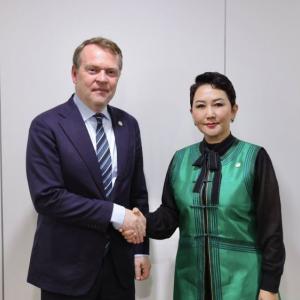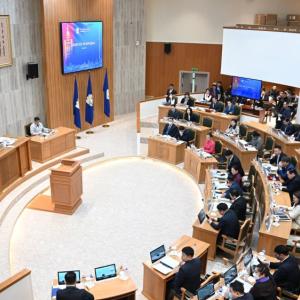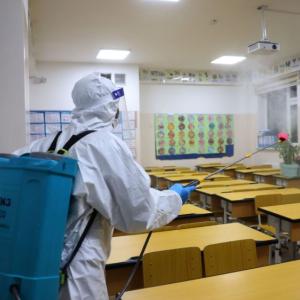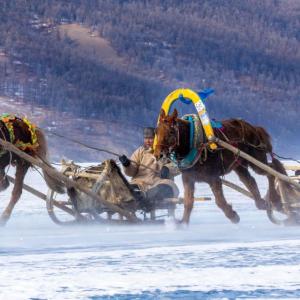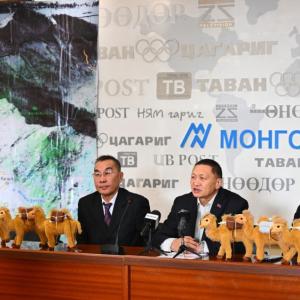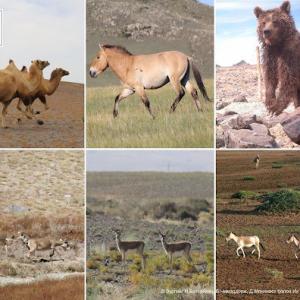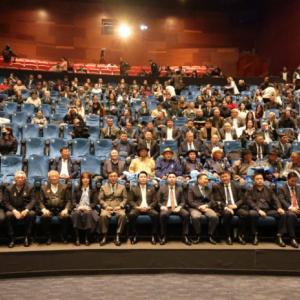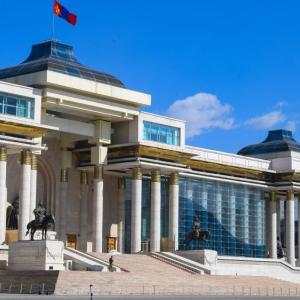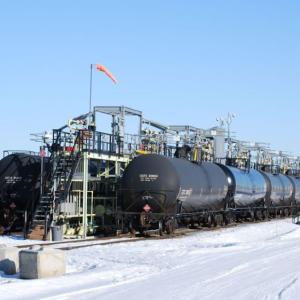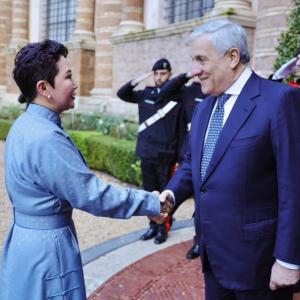First combined solar power and agriculture project commences
The Mongol Messenger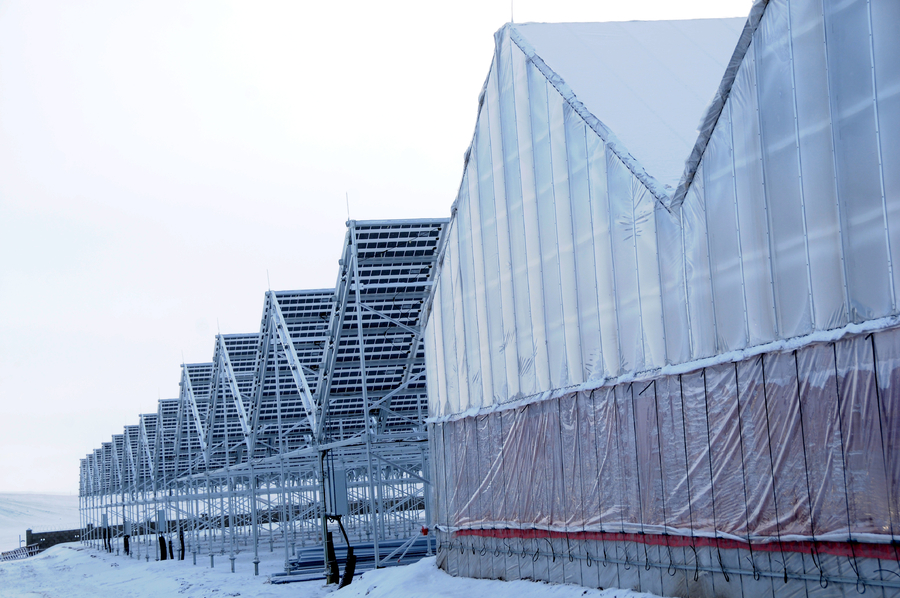
Renewable energy is one of the effective solutions to decrease greenhouse gas emissions, combat global warming, and reduce air pollution by stopping coal consumption. Mongolia is implementing several projects targeted to use renewable energy and several renewable energy plants have been already in operation including the 50 MW ‘Tsetsii’ wind farm in Tsogttsetii Soum of Umnugobi Aimag and a 10 MW solar power plant in Khongor Soum of Darkhan-Uul Aimag. Another solar power plant has been built in a suburb of Ulaanbaatar.
On November 25, operations commenced at the ‘Monnaran’ 10 MW solar power plant in the Songinokhairkhan district. The solar farm project which combines agriculture and solar power generation is being implemented by Everyday Farm LLC, a joint Mongolian-Japanese company. Supported by the Japanese Government and with investment of USD 23 million from ‘Farmdo’ Company, the power plant's construction started in 2015 and installation of 46 thousand 848 solar panels, construction of 20 km overhead electric lines and expansion of Bayanchandmani substation were completed within the project.

Through the Bayanchandmani substation, the power plant will provide energy to 23 thousand households in the central region. Therefore, it is expected to save 16.6 thousand tons of coal, 103.9 thousand tons of water consumption and to decrease carbon emissions by 21.3 thousand tons a year. “Hence it will give strong stimulus to reduce air pollution of Ulaanbaatar”, said R.Jigjid, CEO of Everyday Farm LLC.
The project has been selected as a Joint Crediting Mechanism (JCM) model project by the Ministry of the Environment, Japan, and part of the project will be financed by the Japan Bank for International Cooperation (JBIC) for the first time among JCM projects. This finance is provided through a finance facility established by the JBIC with an aim to promote overseas deployment of Japanese companies.
At the launching ceremony Foreign Minister D.Tsogtbaatar mentioned that Mongolia and Japan are cooperating closely in all spheres such as politics and economy over the past 45 years since the establishment of diplomatic relations. “In 1990, when Mongolian power stations were in financial difficulty, Japan gave us a helping hand. Today, a solar power plant is starting operations to give a significant impulse to combat global warming and protect the environment. This is an expression that by having friendly relations with Japan, Mongolia will not remain behind global development” said the Minister.
Masato Takaoka, Ambassador of Japan to Mongolia noted that Japan is working actively in the direction of combating global warming. “We intend to supply our advanced equipment to other countries. With the help of Mongolia’s support we built this power plant. Successful accomplishment of this project would lead to implement more other projects in the further.”

Moreover, some 20 green-houses were built on 13 hectares of land within the project, and fruits, berries and vegetables such as strawberry and tomatoes will be cultivated using Japanese technology. Solar panels were installed on the roofs of the green houses, providing conditions to heat the green houses and provide electricity and hot air. It allows to conduct farming 11 months in a year. This is the most advanced technology combining farming and energy, underlined the contractors. President of 'Farm Do' company Iwai Masayuki said "Growing crops 11 months a year is not only environmentally friendly, but is also significant to meet the food demand. Although Mongolia has long winter, thanks to the project people have the possibility to consume fresh vegetables every day."
Within the framework of JCM, construction of a 10 MW solar power plant in the Nalaikh district is also planned. JCM was established between Mongolia and Japan in January 2013, with aims to reduce greenhouse gas emissions and arrest the negative impact of traditional energy sources on the environment.
On November 25, operations commenced at the ‘Monnaran’ 10 MW solar power plant in the Songinokhairkhan district. The solar farm project which combines agriculture and solar power generation is being implemented by Everyday Farm LLC, a joint Mongolian-Japanese company. Supported by the Japanese Government and with investment of USD 23 million from ‘Farmdo’ Company, the power plant's construction started in 2015 and installation of 46 thousand 848 solar panels, construction of 20 km overhead electric lines and expansion of Bayanchandmani substation were completed within the project.

Through the Bayanchandmani substation, the power plant will provide energy to 23 thousand households in the central region. Therefore, it is expected to save 16.6 thousand tons of coal, 103.9 thousand tons of water consumption and to decrease carbon emissions by 21.3 thousand tons a year. “Hence it will give strong stimulus to reduce air pollution of Ulaanbaatar”, said R.Jigjid, CEO of Everyday Farm LLC.
The project has been selected as a Joint Crediting Mechanism (JCM) model project by the Ministry of the Environment, Japan, and part of the project will be financed by the Japan Bank for International Cooperation (JBIC) for the first time among JCM projects. This finance is provided through a finance facility established by the JBIC with an aim to promote overseas deployment of Japanese companies.
At the launching ceremony Foreign Minister D.Tsogtbaatar mentioned that Mongolia and Japan are cooperating closely in all spheres such as politics and economy over the past 45 years since the establishment of diplomatic relations. “In 1990, when Mongolian power stations were in financial difficulty, Japan gave us a helping hand. Today, a solar power plant is starting operations to give a significant impulse to combat global warming and protect the environment. This is an expression that by having friendly relations with Japan, Mongolia will not remain behind global development” said the Minister.
Masato Takaoka, Ambassador of Japan to Mongolia noted that Japan is working actively in the direction of combating global warming. “We intend to supply our advanced equipment to other countries. With the help of Mongolia’s support we built this power plant. Successful accomplishment of this project would lead to implement more other projects in the further.”

Moreover, some 20 green-houses were built on 13 hectares of land within the project, and fruits, berries and vegetables such as strawberry and tomatoes will be cultivated using Japanese technology. Solar panels were installed on the roofs of the green houses, providing conditions to heat the green houses and provide electricity and hot air. It allows to conduct farming 11 months in a year. This is the most advanced technology combining farming and energy, underlined the contractors. President of 'Farm Do' company Iwai Masayuki said "Growing crops 11 months a year is not only environmentally friendly, but is also significant to meet the food demand. Although Mongolia has long winter, thanks to the project people have the possibility to consume fresh vegetables every day."
Within the framework of JCM, construction of a 10 MW solar power plant in the Nalaikh district is also planned. JCM was established between Mongolia and Japan in January 2013, with aims to reduce greenhouse gas emissions and arrest the negative impact of traditional energy sources on the environment.
 Ulaanbaatar
Ulaanbaatar





